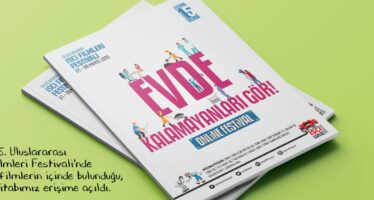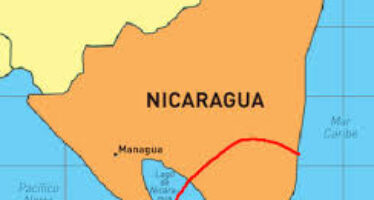Kurdish writer Roza Metina detained in Amed

![]()
Jinnews Kurdish service editor and writer Roza Metina was taken into custody on Friday morning during a raid on her home.
Writer Roza Metina, who was detained within the scope of the Democratic Society Congress (DTK) investigation conducted by the Diyarbakır Chief Public Prosecutor’s Office, was taken to the Provincial Police Department.
We publish here an interview with Metina made by Mina Ro.
The winner of the fourth edition of the Deniz Fırat Short Story and Poetry Award, organized by the Free Students Union this year, were delivered at a ceremony at Maxmur camp.
Author and journalist Roza Metina was awarded the first prize in the Kurdish Story category.
In an interview with ANF, Metina said she was very happy with the award, and added that Kurdish women are the characters of her stories with their sorrows and joys.
“Deniz Fırat Award – she said – is special and meaningful for me. I’ve put the pain we suffered into my writing. I believe that if we get the pain and joy that we live across to the people in the right way, then the people will empathise”.
What does it mean to you to be awarded the Deniz Fırat Short Story Award?
Deniz Firat had an important role in the Kurdish freedom struggle. This award is very meaningful to me. On the other hand, Deniz Firat is a woman, and the struggles of women are very valuable and inspirational for the Kurds. Having an important place in the struggle for women’s freedom, Deniz Firat was a great inspiration for me. I received a prize in the Kurdish language. This is an important detail. We are all struggling with our language. It is very meaningful to get a prize in your mother tongue.
Have you written before and how did you decide to join this award competition?
My writing started with poetry. When I came to Amed and started university, I began to take Kurdish lessons and to improve my language. I began to write in Kurdish while reading Kurdish writers. I wrote my first short story for children. I then wrote Cemile’s story and then participated at the Rojava’s Short Story Competition with a story on Mother Taybet. This year I have been working on the story of the Sultan Irmak who was massacred in one of the Cizre basements.
Why do you prefer to tell stories about women, especially Kurds?
I could not hold my tears when I came to the last sentence of the story of Mother Taybet. I was so sad, I kept thinking about her. For weeks, her body was left on the street. The struggles of women, especially in this system, are very much alive. Despite everything. I write about the women. I prefer writing about Kurdish women because they have a self-defense force, in particular a fighting future. My future stories will also be about women.
Roboski, Sur, Cizre, Halabja, so many events and massacres experienced by Kurds on the way to freedom. What is the role of a writer for you, being a woman writer? Is writing important in this struggle?
We need to write, paint, make films, and tell of our pains and joys with our pen, camera, songs. We must voice what is happening. It is a responsibility to express and write about these events in the context of national consciousness.
We have to write, it is our duty to write in order for people not to forget.
Why did I write about Mother Taybet, or Cemile, or Sultan? Because they can’t be forgotten, they are part of a national memory and consciousness.
I could write about other topics. But we Kurds cannot even love a flower freely. I lived these pains and put them down in writing.
I believe the stories I tell will affect readers when they read them. I want to tell the stories of women, their fight, which goes together with the national fight.
You are both a journalist and a writer. In Turkey Kurdish journalists and writers are systematically under attack. What does it mean to you to have this identity and how did you synthesize your journalism and your writing?
You have to have the ability to write in order to do journalism. I believed journalism and fiction writing are interconnected and intertwined. I wrote fiction before doing journalism, and when I started reporting, I noticed that my writing [fiction] reflected into my news. If you are a journalist, you want to write continuously and produce the most accurate facts. You are trying to reveal the reality of the people.
In my short stories the work is more complicated than in my journalism. But I do get inspiration from journalism.
———–
La escritora kurda Roza Metina detenida en Amed
Este viernes la policía ha entrado en el domicilio de Roza Metina, escritora y editora del servicio kurdo de Jinnews, y se la ha llevado detenida.
La escritora Metina, que ha sido detenida en el marco de la investigación contra el Congreso de la Sociedad Democrática (DTK) abierta por la Fiscalía de Amed (Diyarbakır), ha sido llevada al Departamento Provincial de la Policía.
Publicamos aquí una entrevista che Mina Ro hizo a la escritora.
Los ganadores de la cuarta edición del Concurso de Relato Corto y Poesía Denz Firat, organizado por la Unión de Estudiantes Libres fueron anunciados en una ceremonia en el campamento de Makhmur.
La escritora y periodista, Roza Metina, fue la galardonada con el primer premio en la categoría de Cuento Kurdo.
En una entrevista con ANF, Metina ha dicho que se sentía muy feliz con el premio y añadió que las mujeres kurdas son los personajes principales de sus historias, con sus alegrías y sus penas.
“El Premio Deniz Firat tiene un significado especial para mí. He transcrito el dolor que hemos sufrido. Creo que si conseguimos trasladar el dolor y la alegría que hemos vivido a las personas de la forma correcta, las personas podrán empatizar.”
¿Qué significa para ti el recibir el premio Deniz Firat de Relato Corto?
Deniz Firat tuvo un papel importante en la lucha por la libertad kurda. Este premio tiene un significado importante para mí. Por otro lado, Deniz Firat es una mujer, y las luchas de las mujeres son muy valiosas e inspiradoras para los kurdos. Con un papel importante en la lucha por la libertad de las mujeres, Deniz Firat es una inspiración muy grande para mi. He recibido un premio en lengua kurda. Esto es un detalle importante. Todos luchamos por nuestra lengua. Es muy especial para mí el recibir un premio en mi lengua materna.
¿Habías escrito antes? ¿cómo te decidiste a participar en el concurso?
Mi escritura comenzó con la poesía. Cuando llegue a Amed y empecé la universidad, comencé a dar clases de kurdo para mejorar mi lengua. Comencé a escribir en kurdo mientras leía a escritores kurdos. Escribí mi primera historia corta para niños. Luego escribí la historia de Cemile y luego participé en el Concurso de Relato Corto de Rojava con una historia sobre la Madre Taybet. Este año he estado trabajando sobre la historia de Sultan Irmak que fue masacrado en uno de los sótanos de Cizre.
¿Por qué prefieres contar historias sobre mujeres, especialmente kurdas?
No podía contener mis lágrimas cuando llegue a la última línea de la historia de Madre Taybet. Estaba tan triste… no podía dejar de pensar sobre ella. Durante semanas, su cuerpo fue abandonado en la calle. Las luchas de las mujeres, especialmente en este sistema, están muy vivas. A pesar de todo. Escribo sobre mujeres. Prefiero escribir sobre mujeres kurdas porque tienen una fuerza de autodefensa, en particular un futuro de lucha. Las futuras historias que escriba serán también sobre mujeres.
Roboski, Sur, Cizre, Halabja, tantos eventos y tantas masacres vividas por los kurdos en su camino a la libertad. ¿Qué papel tiene una escritora como tú, siendo una mujer escritora? ¿Es la escritura importante en la lucha?
Necesitamos escribir, pintar, hacer películas, y contar nuestras penas y alegrías con nuestra escritura, cámaras, canciones, etc. Debemos expresar lo que está pasando. Es una responsabilidad expresar y escribir sobre estos eventos en el contexto de la consciencia nacional.
Tenemos que escribir sobre ello, es nuestro deber para que las personas no olviden.
¿Por qué escribí sobre Madre Taybet, o Cemile o Sultan? Porque no pueden ser olvidados, son una parte de nuestra memoria y consciencia nacional.
Podría escribir sobre otros temas. Pero los kurdos no pueden ni amar una flor en libertad. He vivido este dolor y lo he puesto sobre papel.
Creo que las historias que cuento afectan al lector cuando las lee. Quiero contar historias sobre mujeres, sus luchas, que van de la mano de la lucha nacional.
Eres tanto una periodista como una escritora. En Turquía, los periodistas y escritores kurdos son sistemáticamente atacados. ¿Qué significa para ti tener esta identidad y cómo la sintetizas con tu periodismo y escritura?
Tienes que tener la habilidad de escribir para hacer periodismo. Creía que el periodismo y la ficción estaban interconectados y entrelazados. Escribía ficción antes de hacer periodismo, y cuando empecé me dí cuenta que mi forma de escribir se veía reflejada en mis noticias. Si eres una periodista, quieres escribir sin parar y producir datos y hechos más precisos. Estas intentando revelar la realidad de las personas.
En mis relatos cortos, el trabajo es más complicado que en mi periodismo. Pero si que consigo inspiración del periodismo.
Related Articles
15° edizione del Festival del Cinema del Lavoro online
![]()
Da oggi all’8 maggio si svolgerà la 15° edizione dell’İşçi Filmleri Festivali, il Festival del cinema del lavoro organizzato a Istanbul
La monstruosidad del Canal
![]()
El presidente Daniel Ortega con el poder omnímodo que él y su mujer tienen sobre este país, hizo que el Congreso Nacional aprobara en un solo día la creación de una ley para la construcción de un Canal Interoceánico
Nace en Costa Rica primera niña con técnica de fecundación in vitro desde prohibición
![]()
El pasado 8 de marzo del 2017 nació en Costa Rica la primera niña gracias a la técnica de la Fecundación in Vitro





